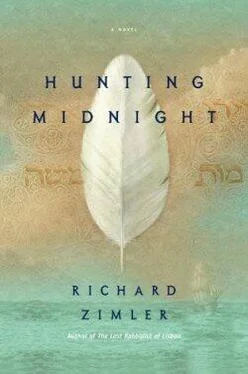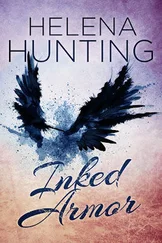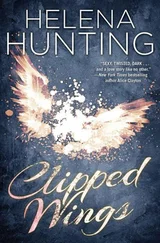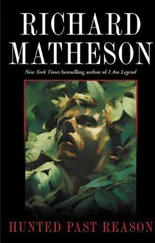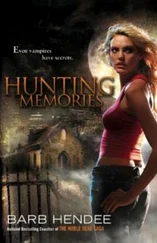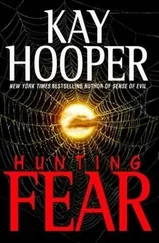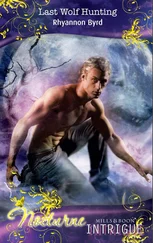They looked into each other’s eyes for a long time. Then Mama slapped her thigh playfully and said, “Now, come with me into the kitchen. We can get to know each other while we prepare supper.”
That evening saved the day. The girls took their cue from their grandmother and, over supper, began to think of Morri as an older playmate. Indeed, they vied shamelessly for her attention that very night, Esther with her violin and Graça with her maps and almanacs. Their first major decision as a threesome was reached the next morning: As soon as they were a bit older, they would voyage to Scotland, Italy, India, and China. “On the way back, we’ll visit Africa, to see where your father comes from,” Graça told Morri with great seriousness.
They were seated on our small sofa, and I squeezed down with them, sitting Esther on my lap. “Well, if you go by sea, do not count on me coming along,” I said, sighing mightily.
Mama laughed till she cried. On regaining her breath, she said, “John, you never understand, do you? The three of them have absolutely no intention of inviting you or me along.”
*
One evening shortly after their arrival, I felt strong enough to explain to Mama what had taken place between Violeta and myself. She went to see her once or twice a week after that, and on occasion brought Esther and Graça along. The children came to be very fond of her and often talked to me of their games together. Mama confirmed that she was gentle and doting with them. I remembered how much she had cherished the children in Newcastle whom she’d raised, and she was plainly finding joy again with my two girls. I begrudged her this only at my worst moments.
When my mother and my children would walk to Violeta’s house, it began to seem to me as though they were visiting a ghost. She became not so very different from Daniel in my mind. It was reassuring in a way, since I suspected that I might soon begin to remember her only with fondness.
And so it was that Mama, Esther, Graça, Morri, and I began our life in New York, awaiting word of Midnight.
John Stewart, April the Fourth, 1824
LVIII
They Embraced the Knowledge of What Was Coming Next
Standing on the street and watching those carriages roll off with near half the people I had ever known made me feel all broken inside. Only Randolph and his children, Mimi and Lawrence, stayed behind on Manhattan Island. They became my only links to River Bend, which wasn’t much good since I’d never been right close to Randolph.
I stayed put in New York because I knew from the moment I reached here that it was the place for me.
Here, everybody runs around trading and building. New York is things exchanging hands. It’s movement. And I like being part of it. Not that I didn’t miss the slow routine of River Bend. We all did, I’d reckon. Though none of us would ever just come out and say that to any white person except maybe John, because they’d take it the wrong way and use it against us. Even the ones up here who weren’t much fond of slavery didn’t seem to think we were good for anything except carrying boxes and cleaning chimneys. I never thought I’d see a person in the North nearly so miserable as the field slaves were at River Bend, but watching the Negro sweeps in their filthy rags, I knew better.
The secret truth was that I missed following Lily around the kitchen and licking her spoons. I missed Crow telling me in that tricky voice of his what silliness he’d overheard Master Edward say. I even missed sitting on the piazza after everyone was asleep and wondering when the hell I was going to get myself out beyond that dark horizon of pine.
I guess because of living in my mind somewhere between River Bend and New York, I stopped knowing who I was for a while. I wanted to talk to John about that just after we got here, and I even came close once or twice, but he was stuck deep down in the sands of his own misfortune and I wasn’t about to add to his worries. Violeta, the woman he loved, struck me at first as someone too secretive for anyone’s good. I sensed a big slice of anger in her too, like she might just be concealing guns in her room. You never saw anyone do as much as her, and act so kind, and help in a hundred different ways, all without ever letting you see what she was feeling. She was a giant question mark all wrapped up in a high-brimmed bonnet. But she couldn’t hide from me that she feared John wanting her so much. Whether this had to do with him having only one arm, I couldn’t tell.
It was during this period that I started writing down things about my life at River Bend and how we all got to New York. Later, John read some of it and told me to keep on going, that I had a gift for telling my story. When we spoke like that, just the two of us, I began to see a whole lot of my father in him — in little things he did and said, like the way he sometimes sat on his haunches or said things were very, very this or that, or the way he’d write an A with a tail attached or a B with paws. It was like we were both living out what my papa had left behind.
*
In early November, maybe a week before most of the other River Bend folks left New York for their farms, I was strolling on Church Street when I saw a group of Negro children funneling out the door to one of those thin brick buildings they have up here, all of them shrieking like steam. While I was watching and smiling, out stepped a young black man smoking a pipe. That reminded me of my papa, so I guess I was staring, and he said to me, “What you looking at, girlie?”
I wasn’t too happy with that girlie, so I corrected his grammar: “What are you looking at.”
“What’s that you’re saying?”
He seemed to be another one of those puffed-up Northern Negroes we’d met, who thought we were all just wormheads — and who claimed not to understand our Southern accents.
I started to walk on. “You know how to read and write, young lady?” he called after me.
I turned and sized him up. He was not half bad-looking if you squinted.
“If I know how, what’s it to you?”
He laughed at that and said, “Where are you from?”
“The moon.” Imitating the nasal way the blacks around here speak, I said, “That’s why I got my peculiar pronunciation, don’t you know.”
“What’s your name?” When I told him, he said, “Well, Morri, how’d you like to put your reading and writing to good use at teaching?”
“I’ve never taught anyone anything.”
“Good,” he said, laughing. “Then you won’t have to unlearn any bad habits.”
“What would I teach?”
“Reading and writing. This is a schoolhouse. Allow me to introduce myself — I’m the headmaster, William Arthur.”
He came down the stairs to me and shook my hand.
“You’re the headmaster? Why … why, you can’t be more than thirty years old!”
“I’m twenty-seven. I never knew there was any age requirement, you see. If there is, you had better tell me about it, since this is my third year.”
“Will you pay me?”
“A regular wage every month. Can you start later this week?”
“Why not today?”
He laughed again. “Because I don’t need you today. I need you in two days. All you have to do is be here every morning at nine o’clock sharp and show the children how to read and write. Four hours a day. Two different classes of thirty. Think a young lady from the moon can do that?”
“Well, I guess we’re going to find out, aren’t we?”
*
I was so happy about my new job that when I got home I told John we ought to get the adoption papers ready. It was what he wanted, and what my papa had wanted, and I was in the mood to make everyone in New York as happy as I was. Then John spoke about Papa as if he were dead, spoiling things good. I forgave him only because I saw in his eyes that we were the same in a way — since we’d likely wonder all our lives what had happened to him.
Читать дальше
